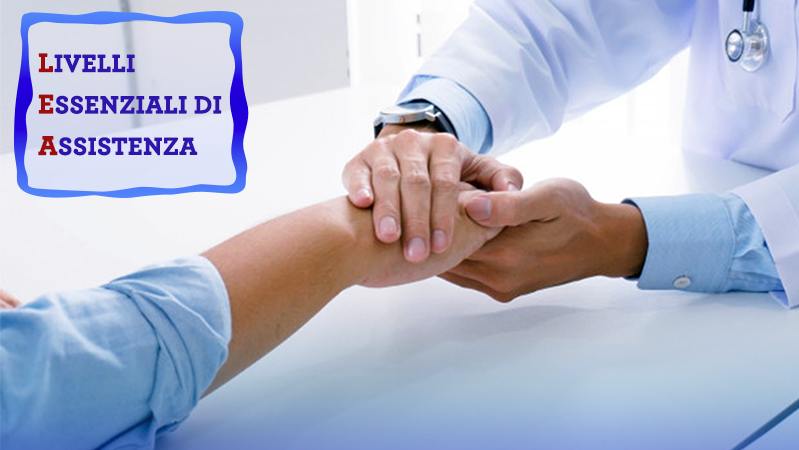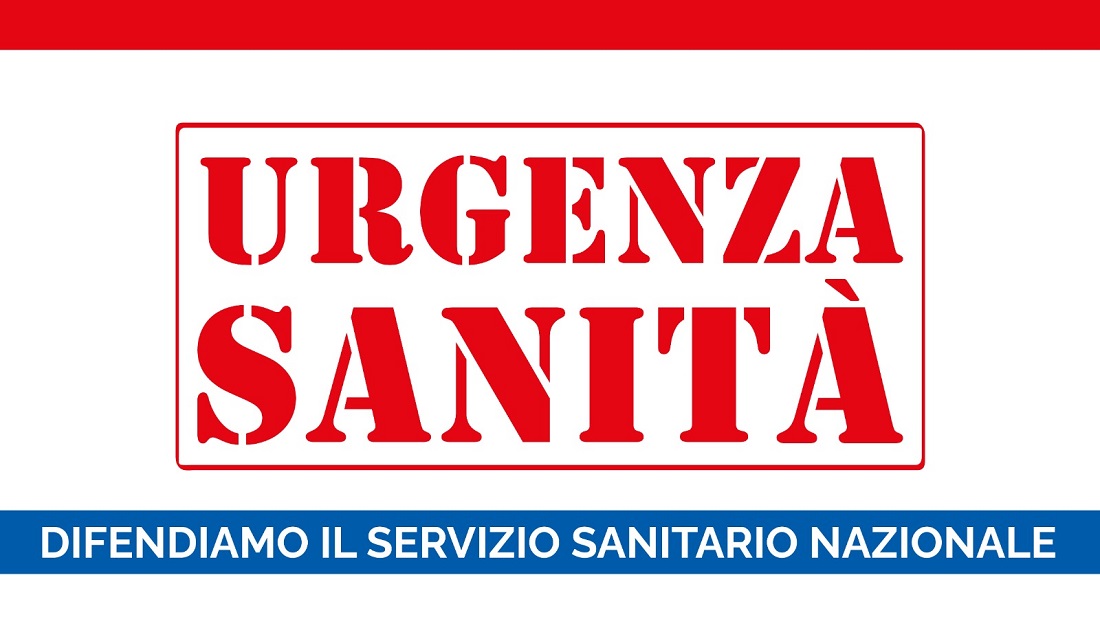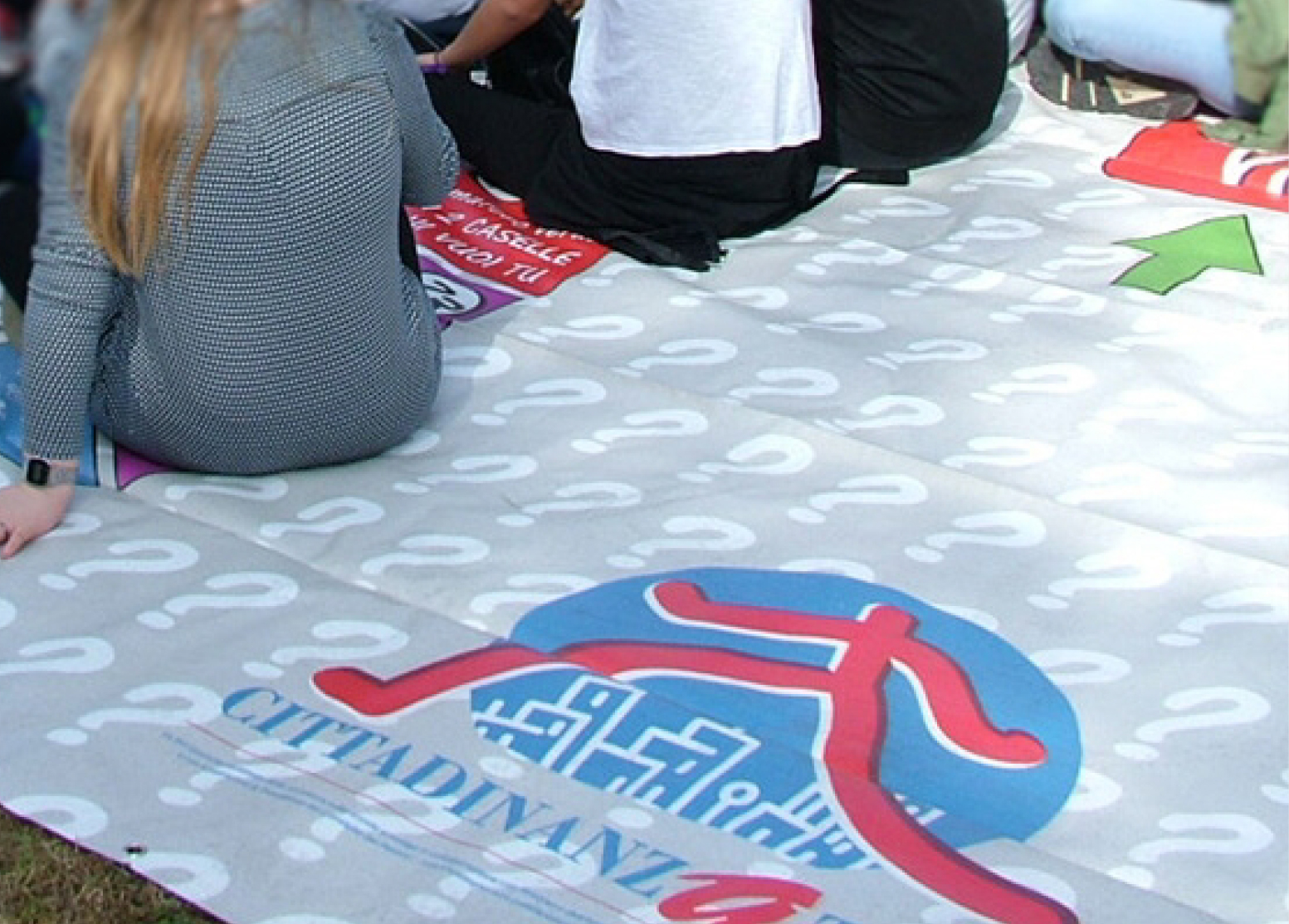Waiting lists, ticket and access to services more and more difficult. Health seen by citizens in the XVI PiT Health Report 2013, "Less health care for all. The creeping reform" of the Tribunal for Patients' Rights-Cittadinanzattiva
Waiting lists, ticket and access to services more and more difficult. This is the image of our National Health Service as it emerges from the XVI PiT Health Report of the Tribunal for Patients' Rights-Cittadinanzattiva, presented today in Rome at the Ministry of Health. "Less health care for all, the reform creeping" is the title of the report, that after years in which medical mistakes represented the more felt problem by the people, this year sees precisely as the first item that access to health services (18, 4% of the total of 27,491 reports of 2012).
About 12% of the reports received by the PiT Health, in 2012, covers the costs paid by the citizens to access some health benefits. The economic situation in our country has taken on a particular gravity because of the absence of identification of measures to revive and pushes to innovation and growth. If yesterday the citizen resigned to the need to pay to make up for a lack of service, suspended or untimely, today it renounces at it. We wanted to put together the reports which concerned the greater weight of the costs to access to health care and services and to purchase medications and aids and we have synthesized them in the following table.
|
Costs related to: |
% |
|
Drugs |
25,7% |
|
Intramural Performance |
24,4% |
|
Ticket for diagnostic tests and specialist visits |
16,3% |
|
Mobility health |
9,9% |
|
Stay in assisted nursing |
7,6% |
|
Lack prosthetic assistance and supplementary |
6,9% |
|
Lack of pharmaceuticals and diagnostics exemption for certain rare diseases |
4,8% |
|
Ticket First Aid |
2,8% |
|
Duplication of medical records |
0,9% |
|
Home visits |
0,7% |
|
Totale |
100% |
Source Cittadinanzattiva - data analysis PiT Health 2013
“The picture that emerges shows that the public National Health Service, universal, fair and equal, as we have always known, unfortunately, is now a distant memory,", said Tonino Aceti, coordinator of the Tribunal for Patients' Rights-Cittadinanzattiva and responsible of the National Coordination of Associations of the chronically ill.“ To those who say that we need to rethink the concept of universalism (ensuring everything to everyone), we say that what has already been achieved in practice through a reform of "not standardized", on which neither the public nor health care providers and all other stakeholders have been called to speak their opinion: pretty much a real "creeping" reform, Aceti added.
Access to medicines is the most onerous area in economic terms and has been reported by citizens in 25.7% of cases. As for the drugs in band A citizens are forced to pay a greater price difference between the generic and the special. Patients, especially those affected by chronic and rare pathologies, they must pay out of pocket in C band drugs, arriving to spend on average € 1127 per year, or parapharmaceutical products (1297 euro), although they are indispensable and irreplaceable for them, and they should make use of them for a lifetime.
The costs for the benefits in intramoenia (24.4%) appear in the same way excessive to citizens, however forced to support them in order to promptly respond to the needs of care that the public service is not able to satisfy.
The weight of the ticket on diagnostics and specialist (16.3%) is the third sector reported by the citizens as excessively difficult from the economic point of view and it is becoming a real obstacle to treatment. From the photo taken from CENSIS on the occasion of Welfare Day, in fact, more than 9 million Italians have complained that they cannot access to some health services they needed due to lack of money. Of these more than 2 million are elderly, 5 million live in couple with children and 4 million live in the South. Furthermore, a study of Agenas shows the decrease of 8, 5% of benefits provided to charge the NHS: the reduction is distributed across all areas, but more marked in the laboratory tests. In the segment of the population that has no exemptions for either income or for disease (which corresponds to about half of those who make use of specialist services), data reached 17.2%. This information suggests that a part of the citizens, given the increased costs of the services of the NHS, has decided not to request it or give it up altogether or purchasing them by private establishments (or intramoenia).
And if into a family there is a disabled or an elderly person there really is nothing to worry about: residential exorbitant costs (7.6%), for which citizens come to pay an average of € 13,946 per year. The care allowances deleted or inexistent, and inadequate home care force families to turn to private care workers, resulting in a considerable increase in costs that comes to an average of about € 8,488 per year.
Regarding the prosthetic and supplementary assistance (6.9%), citizens are forced to pay an average of up to 944 € per year for products of acceptable quality or quantity.
Today, citizens have free access to innovative, customized and high-quality devices, if not paying their own way really high numbers. If we look at people with a ostomy for example, they are forced to use really poor quality devices, with a heavy impact on the healthon the quality of life, without considering the additional costs entailed for the NHS.
Waiting lists. The difficulties inherent the long waiting lists to access to examinations, visits and surgery have the first entry (74.3%), the greater recourse to intramoenia because of its excessive time in public (15.4%) and the unsustainability of the cost of the ticket (10.3%). 37.2% of the reports refer diagnostic tests, while 29.8% refers to specialist visits. Another significant part of the reports (28.1%) is concentrated around the demands of hospitalization for surgery, while nearly 5% represents the accesses for cancer treatments such as chemotherapy and radiotherapy.
“We are faced with an inaccessible Health Service, which decides who to heal using the chronological order (cannot get sick at year end, that is to say "first come first served") and territorial. A selection made by a cut done through the National Health Fund unprecedented, amounting to over 30 billion € in 2013-2015 with retroactive effect, however, with all that this entails", Aceti added. “A de-funding paid directly with the money of the citizens, obliged to bear the increasing costs or care or to give it up, and replaced by its support of families, real pillar of the welfare system, in respect of which the state has implemented a proper delegation of care”.
In the context of diagnostic tests, on average, expected more for the performance of radiology, as evidenced by the 24% of reports in 2012 (15.4% in 2011). It is a data on the rise, which underlines the annual nature of the problem. Here are two very sensitive areas, oncology with 17.5% (20.4% in 2011), and gynecology and obstetrics with 13.6% (14.3% in 2011). The values of Cardiology and Gastroenterology remain substantially unchanged, respectively, with a 9.8% and 9.7%. For the specialist is actually the eye examination to be reported as most at risk and alone it represents about a quarter of reports (25.6%, whereas it was 18.5% in 2011). The cardiology visits, with a data which is also equal to 25% of the total (the value was 11, 5% in 2011), is another area of discomfort, together with those orthopedic (since 2012: 15.1%; data 2011: 17%). It is striking again having to count the oncology signaling among the objects, a figure of 9% (coherent for 2012 and 2011) is not yet guarantee of the timeliness which is necessary for such a delicate area. For surgical procedures, citizens have reported, for 2012, excessive waiting for orthopedic procedures (24.7%), oncology (16.4%), general surgery (13.7%, but was 8% in 2011 ) and urology (10.3%, 14% in 2011): in the first case the value is lowered with respect to the detection 2011 (was 29%), increased in the second case (it was in fact 14%).
|
Average wait for diagnostic examination |
2012 |
2011 |
|
Mammography |
13 months |
11 months |
|
MOC |
12 months |
15 months |
|
Doppler |
9 months |
6 months |
|
Colonoscopy |
9 months |
8 months |
|
Ultrasound |
8 months |
7.5 months |
|
Magnetic Resonance |
8 months |
- |
|
Radiography |
8 months |
- |
|
TAC |
6 months |
- |
|
Echocardiogram / Electrocardiogram |
6 months |
7 months |
|
Gastroscopy |
3 months |
- |
Table 3, a source Cittadinanzattiva - PIT Health Report 2013
|
Average waiting time for specialist check |
2012 |
2011 |
|
Urological |
12 months |
11 months |
|
Pulmonary |
10 months |
- |
|
Ophthalmology |
9.5 months |
11 months |
|
Cardiology |
9.5 months |
6 months |
|
Oncology |
7 months |
6 months |
|
Dental |
6 months |
5 months |
|
Neurological |
6 months |
5.5 months |
|
Dermatology |
6 months |
- |
|
Gynecologic |
6 months |
- |
|
Orthopedic |
5 months |
7 months |
Table 4, a source Cittadinanzattiva - PIT Health Report 2013
Supposed malpractice. 17.7% of people (16.3% in 2011) is addressed to the Tribunal for Patients' Rights-Cittadinanzattiva for cases of supposed medical error, a decrease of those supposed errors relating to diagnostic and therapeutic (62.7 % of 2011.57% in 2012).
The greatest number of reports of presumed diagnostic errors is found in oncology, with 27.3%, since a slight increase compared to 26.5% in 2011.
The second most reported area remains orthopedics, which amounted to a 14.3%, and to follow the area of gynecology and obstetrics with 9.1% of reports.
Instead, with regard to medication errors, orthopedics continues to be the area with the highest number of reports (32.1%), an increase over the previous year in which we recorded 23.1%. The general surgery follows, with a 11.2% and the gynecology and obstetrics with 8, 2% of cases.
Greatly increase the reports regarding the condition of the health facilities, rising from 15% in 2011 to 23% in 2012. It is a worrying fact, since last year we even recorded a slight decrease. The poor hygienic conditions could facilitate the emergence of infectious diseases: Italy remains one of the best healthcare systems in Europe, in terms of access and services offered, and it is unthinkable that citizens marker dilapidated structures and devoid of the minimum standards of hygiene . We must ensure both acceptable reception conditions and access to adequate medical care.
Reports about the carelessness of healthcare workers, as all those activities that, while not having caused damage, are unsuitable and potentially risky procedures, remain almost unchanged and are again a significant percentage of the reports in this area (12.1% of 2011 , 12.5% in 2012).
One of the areas where there are instances of malpractice appears to be also the use of defective implants. This is 3.4% of the cases, in particular related to breast implants and hip replacements.
“It is essential, now more than ever, in order to guarantee "social cohesion" of our country, once again on the bar between equilibrium and rights. It is clear that this first regards a "political" choice, which mackerel from the idea of the unsustainability of our NHS (produces more than 11% of GDP and absorbs only 7.1%) and instead points to adequately support compared to the real needs”.
Let's talk about community care (15.3%). It is a complex field, due to the high number of figures of reference and intervention, offices and procedures that sometimes it is necessary to activate to achieve the required performance. The comparison between vintages can also note a substantial balance between the values, with differences not exceeding two percentage points, except in the case of rehabilitation, which rose from 16.9% in 2011 to 13.6% in 2012, or voices that keep the same incidence of reports (such as residential Care, with 18.3% in both 2011 and in the following year). Thus, the basic primary care services improve (which mostly involve the General Practitioner, Pediatrician of the free choice and the Guardia Medica), 25.9% in 2011 and 23.4% in 2012, while keeping a trend downward for mental health services (15.5% in 2011, rising to 17% in 2012, confirming the difficulties of organization in this field). Most problematic is also getting the home care services (in 2012 value of 16.4%, was 14.3% in 2011), as well as prosthetic and integrative care, which provides an increase in reports from 9.1% in 2011 to '11, 3% in 2012
Many other items are affected by the PiT Health Report. Among these, we point out aspects of Humanization of care (3.8%).
In the reports there is a prevalence of rude attitudes toward patients (over a third of records: in 2012 the value was 31.5%, down from the 2011 figure, 36.6%). Followed by neglect (30.2% of the total, in 2012, an increase over the previous year, with 25.9%) and real abuse (14.8% in 2012, 13.4% in 2011). In 11, 3% of cases, moreover, it is difficult to receive by your health care information on their state of health (the figure was 9.8% in 2011), or are recorded incidents of violation of your right to privacy (5% is the data for 2012, 6.3% in 2011).
These are the main proposals of the Tribunal for Patients' Rights-Cittadinanzattiva.
- Stop further cuts to the National Health Fund
- Update the Essential Levels of Assistance (LEA) implementing the provisions of article 5 of the Decree Balduzzi: review lists of chronic and rare exempt, revision of Tariff Nomenclature Arthroplasty;
- Act in a systematic way to govern the waiting lists, starting from:
- Updating the Plan of Government of waiting lists expired for more than one year
- Management of agendas for hospital admissions more transparent, promoting networking and centralization of information about;
- Transparency and consultability for all citizens of the real waiting times (and not just the maximum time) for visits, examinations, hospitalizations and day surgery by highlighting them on their website, in a special section called "waiting lists" (extensive application of the decree 33/13);
- Anticipating the discretionary policy only within a rigid frame of certified skills, not only in the appointment of General Managers of ASL but enlarged to managers of agencies and public bodies that deal with health care, however,.
- Involving Organizations of citizens and patients, shareholders and users of the NHS: for the approval of the New Covenant for Health that will track the health for the coming years and the eventual process of reform of the system of ticket.












